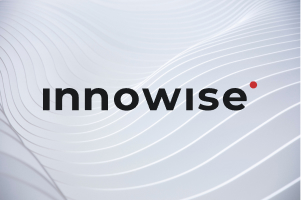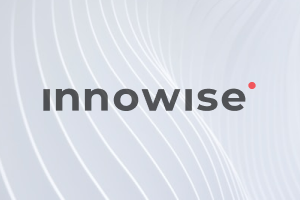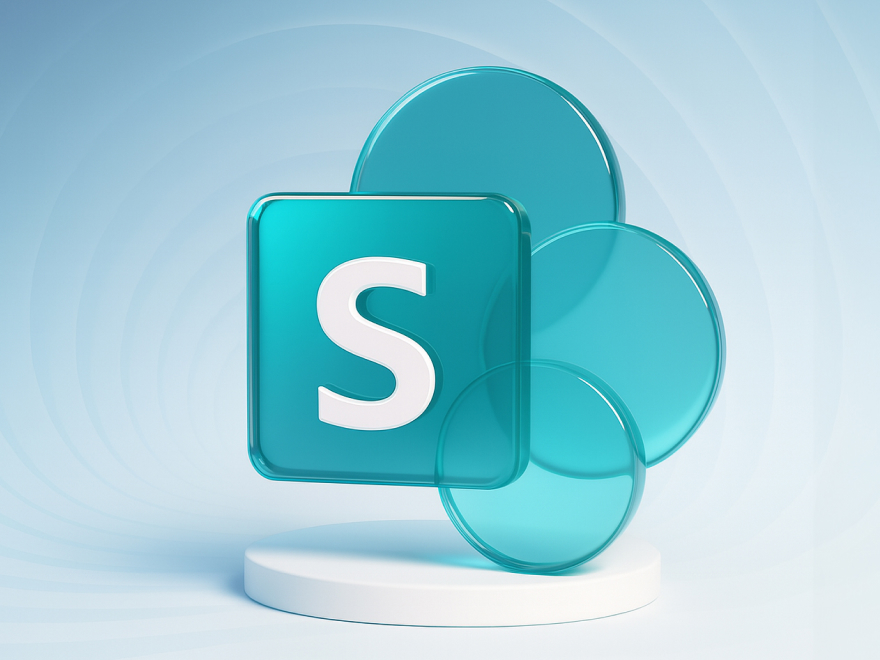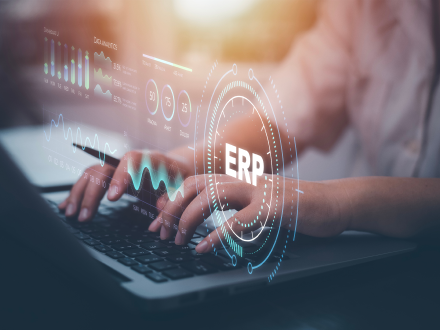Meldingen din er sendt.
Vi behandler forespørselen din og kontakter deg så snart som mulig.
Skjemaet har blitt sendt inn.
Mer informasjon finner du i postkassen din.


Det er ingen enkel oppgave å administrere en stor arbeidsstyrke. Etter hvert som bedriften vokser, blir det stadig mer utfordrende å spore de ansattes ferdigheter og plassere de riktige personene i de riktige rollene. Det er her et LMS (Enterprise Learning Management System) kommer inn i bildet. Men hva er egentlig en LMS for bedrifter? Det er en plattform som hjelper bedrifter med å drive opplæringsprogrammer mer effektivt og få verdifull innsikt i de ansattes ferdigheter og kvalifikasjoner.
Med et LMS for bedrifter forbedrer du ikke bare opplæringsprosessene dine - du får også et verktøy som lar deg overvåke og administrere teamets ferdigheter i sanntid. Tenk deg at du forbereder et viktig prosjekt og trenger å sette sammen et team med spesifikke ferdigheter. I stedet for å basere deg på utdaterte registre eller gjetninger, gir et LMS deg umiddelbar tilgang til oppdaterte data om de ansattes evner og sertifiseringer. Dette gjør det enkelt å finne den beste arbeidskraften til prosjektet, og sikrer at det er i dyktige hender.
Et LMS for bedrifter gjør mer enn å hjelpe deg med å finne de rette medarbeiderne. Det hjelper deg også med å oppdage og rette opp kompetansehull i organisasjonen. Hvis mange ansatte for eksempel sliter med en spesifikk oppgave, kan du lage et fokusert opplæringskurs og gjøre det obligatorisk. Denne tilnærmingen øker den enkeltes prestasjoner og styrker hele arbeidsstyrken.
LMS-plattformenes økende betydning fremgår tydelig av deres voksende markedsstørrelse. Ifølge en rapport fra Market Research Future ble markedet for læringsplattformer verdsatt til $16,4 milliarder kroner i 2023.
I de neste avsnittene skal vi se nærmere på hvordan LMS-plattformer er til nytte for bedrifter, utforske de tilgjengelige alternativene og hjelpe deg med å finne den perfekte løsningen for dine spesifikke behov, slik at du unngår å gå feil vei.
14,6%
er forventet CAGR for det globale LMS-markedet fra 2024 til 2032
56%
av organisasjonene mener det er svært viktig å investere i opplæring av ansatte
$15 til $40
er det typiske månedlige budsjettet per bruker for LMS
Det er svært viktig å velge en læringsplattform som passer perfekt til bedriften. Denne veiledningen gir en klar prosess for å implementere den mest egnede LMS-en. Følg disse trinnene for å få en smidig og effektiv utrulling.
Finn ut hvilke funksjoner LMS-et ditt må ha, med utgangspunkt i følgende kategorier.
Finn ut hvilke funksjoner LMS-et ditt må ha, med utgangspunkt i følgende kategorier.
LMS-er for bedrifter går langt utover grunnleggende administrative oppgaver. De spiller en avgjørende rolle i å skape disiplin i arbeidsstokken ved å følge nøye med på kursgjennomføring, spore fremgang og vurdere ferdighetene de ansatte har tilegnet seg. Dette sikrer at teamet ditt holder seg på rett spor og kontinuerlig utvikler den kompetansen som trengs for å lykkes.
Et LMS for bedrifter gir umiddelbar innsikt i de ansattes fremgang, kursgjennomføring kursgjennomføring og ferdighetsutvikling. Med robuste analyseverktøy kan du enkelt spore ferdighetene i arbeidsstokken din arbeidsstyrken og raskt identifisere den rette personen for enhver oppgave. Dette hjelper deg med å ta informerte beslutninger og holder teamet ditt på rett spor for å lykkes.

Enterprise LMS-plattformer forenkler kursoppgavene ved automatisk å tilpasse opplæringen til roller, sertifiseringer og samsvarsbehov. Denne automatiseringen effektiviserer planlegging og påminnelser ved å definere obligatoriske kurs. De ansatte må fullføre disse kursene, og LMS sporer deres LMS sporer fremdriften og bekrefter kompetansen deres på viktige områder.

Et utvidet LMS for bedrifter går lenger enn intern opplæring. Det støtter også opplæring for partnere, kunder og leverandører. Med funksjoner som multi-tenancy og AI-basert læring kan du tilby skreddersydde opplevelser. I tillegg, med e-handelsintegrasjon er det mulig å gjøre opplæringsprogrammene dine om til nye inntektsstrømmer.

Ved å koble LMS-et ditt til ulike forretningssystemer kan du automatisere oppgaver og sikre konsistente data på tvers av organisasjonen. Dette vil gjøre det enklere å spore de ansattes fremgang og etterlevelse. Resultatet er at du kan ta bedre beslutninger og oppnå prosjektmålene mer effektivt.
HR-systemer
CRM-systemer
ERP-systemer
CMS-programvare
Analyse- og BI-verktøy
Plattformer for e-handel

Maksim Hodar
Leveransedirektør i Innowise
Hva er nøkkelen til å holde arbeidsstyrken din engasjert og i front? Et skreddersydd LMS for bedrifter kan være svaret. I motsetning til plattformbaserte løsninger, tilpasser et skreddersydd LMS opplæringen til virksomhetens mål og kultur. Her er hvorfor en tilpasset LMS kan være det riktige valget for din organisasjon.
Bedriftslæring er i rask utvikling, med nye trender som omformer hvordan bedrifter tilnærmer seg opplæring av ansatte. La oss ta en titt på noen av de mest innflytelsesrike trendene innen LMS for bedrifter og se hva som er i gjære i læringsverdenen.
Med et VR-hodesett kan du gå inn i et virtuelt treningsmiljø der du kan øve på ferdighetene dine i realistiske simuleringer. Oppslukende teknologi som virtuell virkelighet og utvidet virkelighet gjør dette mulig, og gir interaktive læringsopplevelser som overgår tradisjonelle metoder. Med disse teknologiene kan de ansatte delta i scenariobaserte opplæringsmoduler, der de kan ta beslutninger og lære av resultatene uten at det får konsekvenser i den virkelige verden. En bedrift kan for eksempel bruke VR til å lære opp ansatte i sikkerhetsprosedyrer ved å simulere nødsituasjoner, slik at de kan reagere raskt og effektivt.
Kort sagt er det smart å skaffe seg et LMS for bedrifter som ønsker å skjerpe arbeidsstyrken sin.
Enten du prøver å få fart på introduksjonen eller å få teamet ditt i form til det neste store prosjektet, er et LMS nyttig. Og med spennende trender som immersiv læring og AI-drevet innhold, blir potensialet bare større og større.
Hos Innowise hjelper vi bedrifter med å finne det rette LMS-et for å utvikle en dyktig arbeidsstyrke. Vil du se hvordan det fungerer for deg? La oss ta en prat og komme i gang!
Et LMS brukes til å skape og administrere pedagogisk innhold for skoler og små bedrifter. Et LMS for bedrifter er utviklet for store organisasjoner, og tilbyr funksjoner som skalerbarhet, systemintegrasjon, avansert analyse og tilpassbare roller for å håndtere komplekse opplæringsbehov og krav til samsvar.
Et LMS for bedrifter hjelper store organisasjoner ved å skalere for å støtte mange brukere, integrere med HR-systemer og tilby analyser for å spore opplæringseffektiviteten. Det tilbyr tilpassede læringsløp og sikrer etterlevelse av regelverk, noe som forbedrer de ansattes utvikling og effektiviserer driften.
Ja, et LMS for bedrifter kan integreres med HR-systemer for å synkronisere medarbeiderdata, effektivisere onboarding og tilpasse opplæringen. Denne integrasjonen reduserer administrative oppgaver, sikrer datakonsistens og forbedrer opplæringseffektiviteten.
Bruk av et LMS for bedrifter krever at man beskytter data med kryptering og sikre tilgangskontroller, at man overholder regelverk som GDPR, og at man angir rollebasert tilgang for å begrense innsyn i data. Regelmessige sikkerhetsrevisjoner bidrar til å forhindre sikkerhetsbrudd og holde systemet sikkert.













Meldingen din er sendt.
Vi behandler forespørselen din og kontakter deg så snart som mulig.

Ved å registrere deg godtar du vår Retningslinjer for personvern, inkludert bruk av informasjonskapsler og overføring av dine personopplysninger.